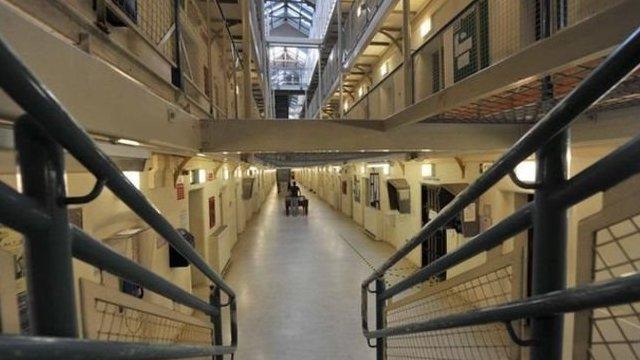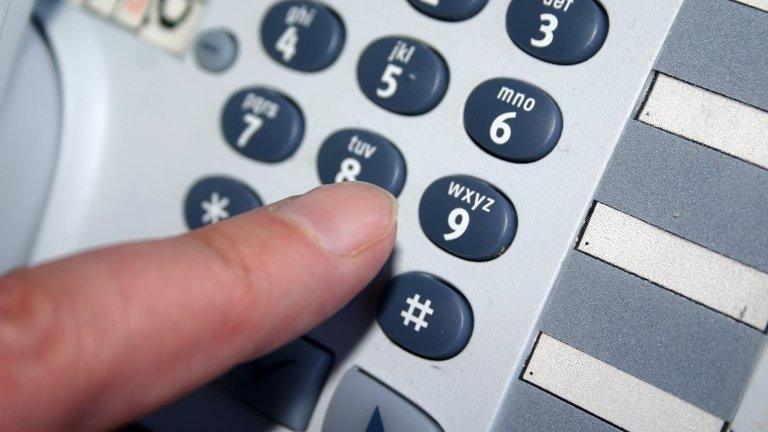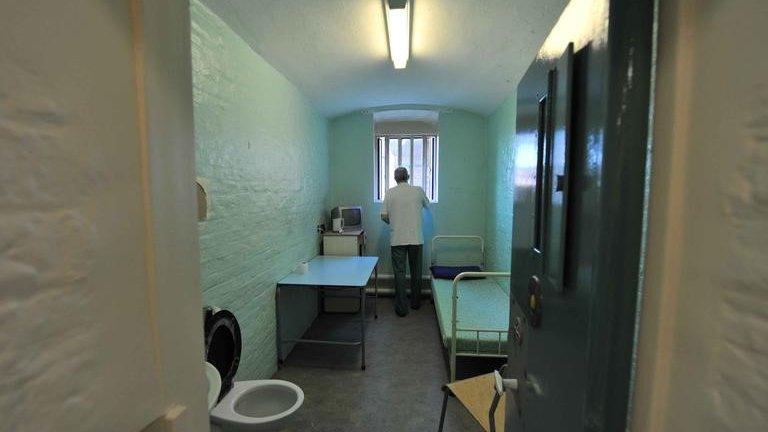Prisoner calls to MPs not monitored 'on widespread scale'
- Published

Prisoners' calls to MPs were deliberately monitored in "a small number" of cases, the prison inspectorate found
There is "no evidence of a widespread, deliberate attempt" to monitor calls between prisoners and MPs in England and Wales, an inquiry has concluded.
Since 2006, prison staff recorded 3,150 prisoner calls to MPs, and downloaded 280 for playback - but most were listened to "in error", chief inspector of prisons Nick Hardwick said.
In a "small number" of cases rules were deliberately broken, he found.
Prisoners are entitled to confidential phone calls with their constituency MP.
The inquiry into prison practices was ordered by the former justice secretary, Chris Grayling, after concerns confidential conversations may have been taped and listened to by prison staff.
He said the monitoring may have taken place between 2006 and 2012, and at least 32 current MPs could have been affected.
'Widespread ignorance'
The report, which concludes the second stage of the inquiry, found that since 2006, prisoners made around 5,600 calls to MPs, of which 3,150 (56%) were recorded.
Of the recordings, 280 (8.8%) were downloaded to a playback system and "probably listened to" on 358 occasions, and 68 calls were listened to live or exported to disc. Most calls were short.
The report said that 35 prisoners, 37 MPs and 38 prisons using a BT phone system were involved.
Nick Hardwick said: "I have not found evidence of a widespread, deliberate attempt to monitor communications with MPs and I believe that the majority of calls were downloaded for listening in error."
He said there was "widespread ignorance about how the system was supposed to operate among both prisoners and staff", and in many cases prisoners did not know they were entitled to call their MP in confidence.
However, he ordered a formal investigation into the small number of cases where there was evidence that rules were deliberately broken by prison staff.
He also made recommendations, including improving understanding of confidential access privileges among prisoners and staff, and consistency of policy and practice between prisons.
The first stage of the inquiry, which reported back in December, found that urgent measures to stop prisoners' phone calls being inappropriately tapped had been "largely" effective.
- Published16 December 2014

- Published11 November 2014
